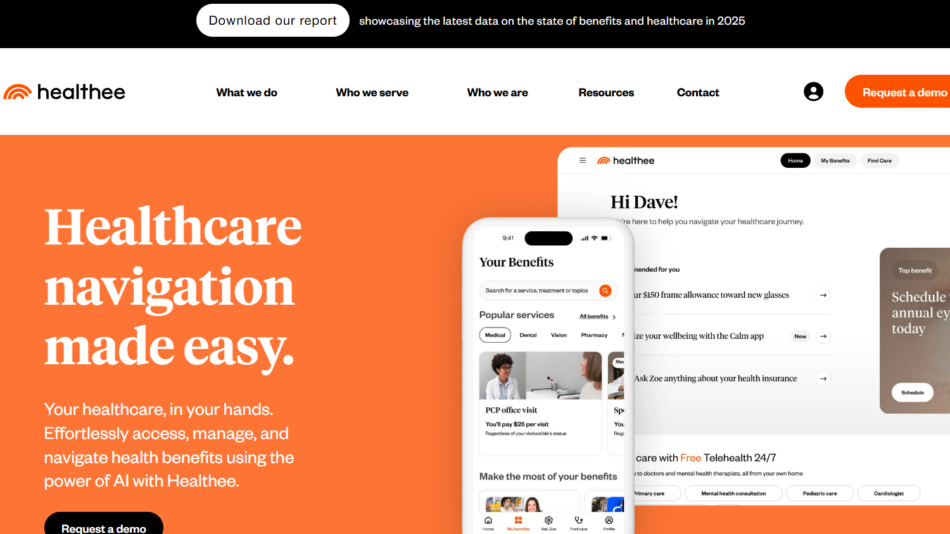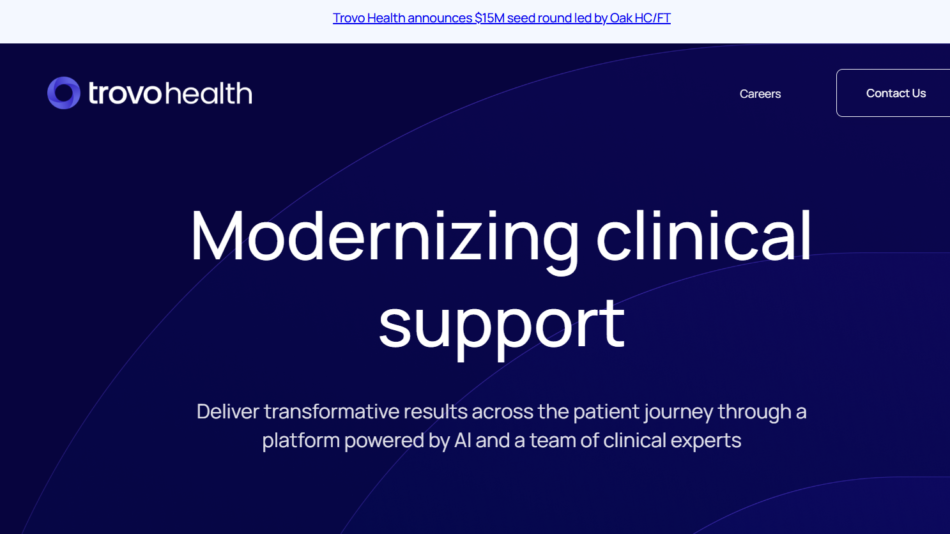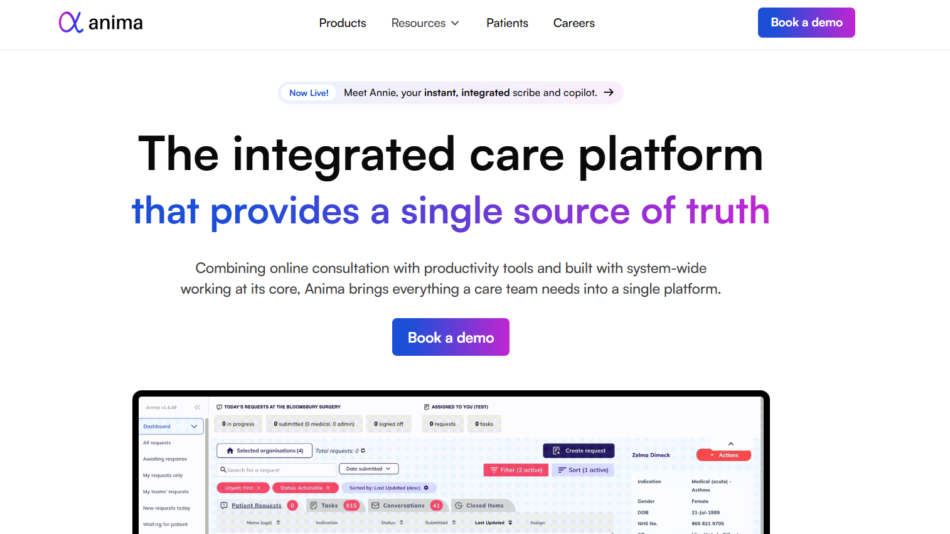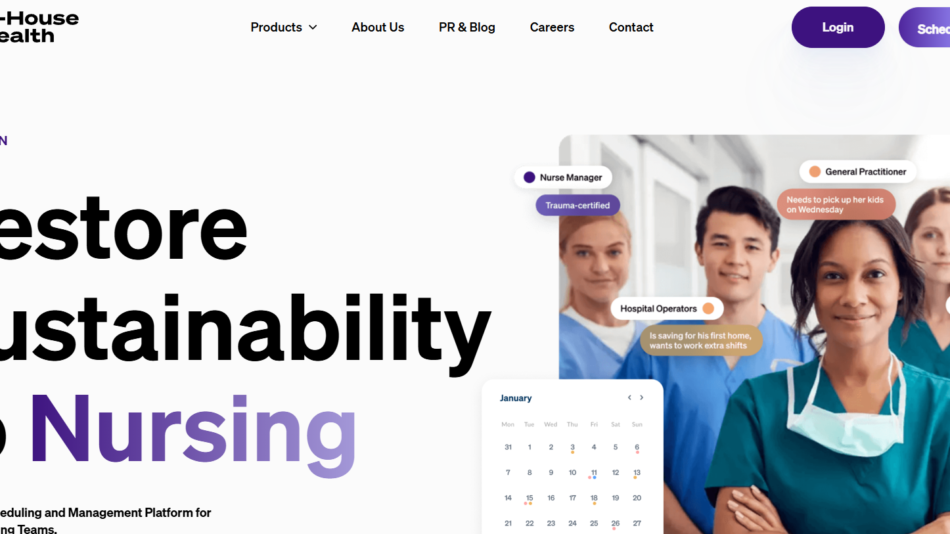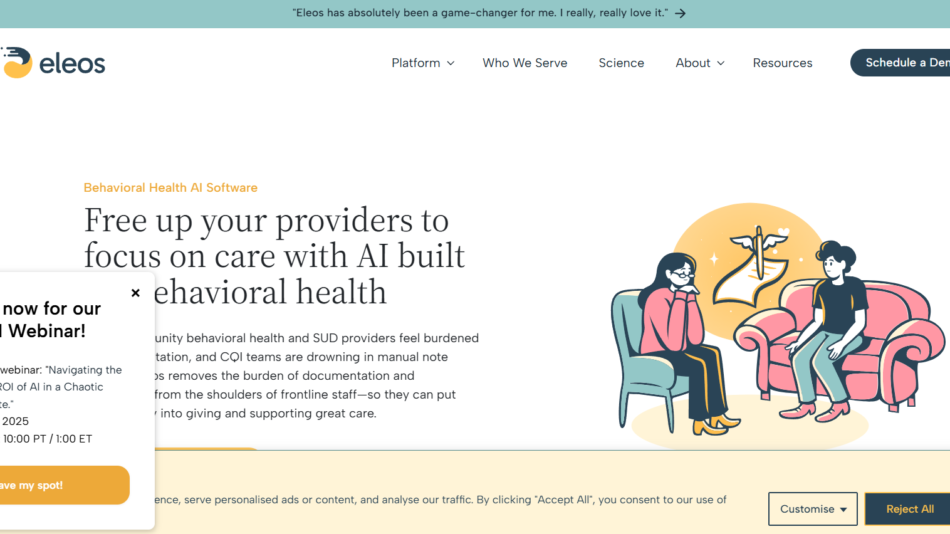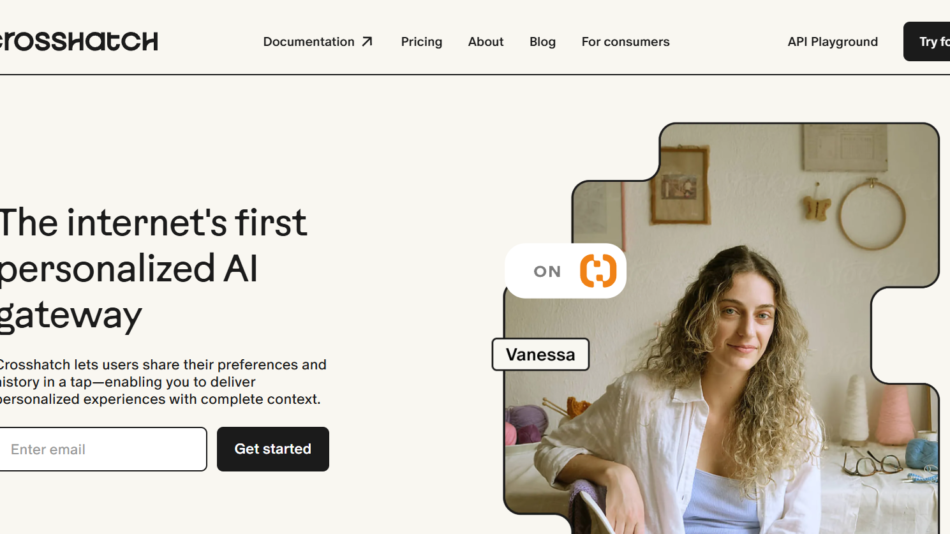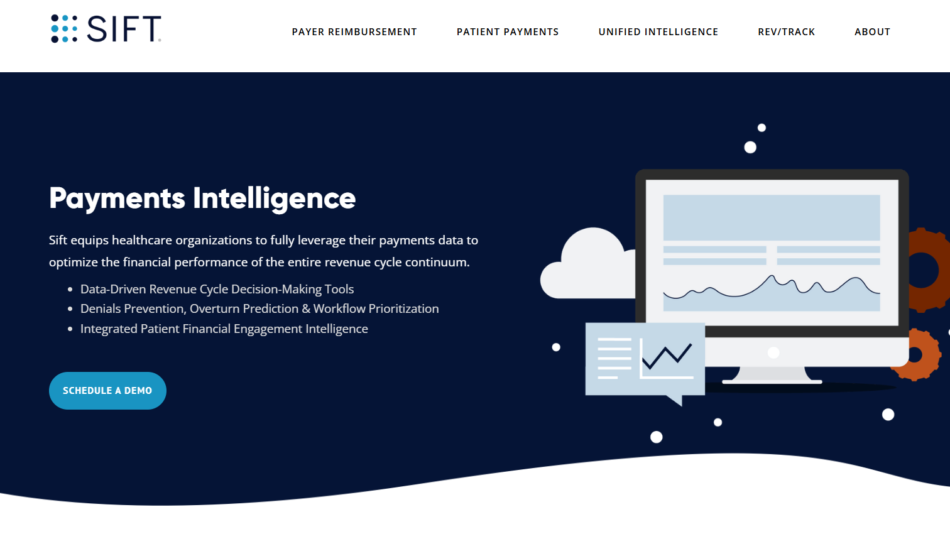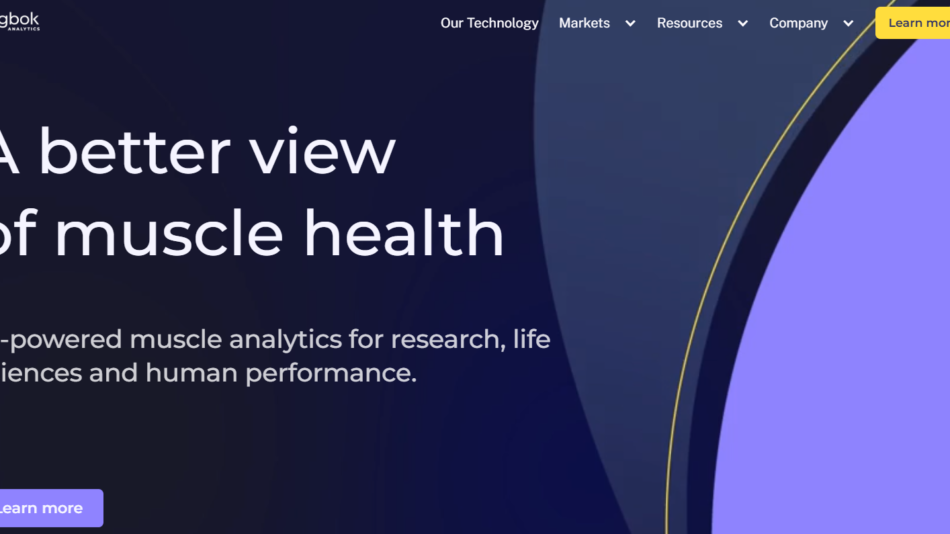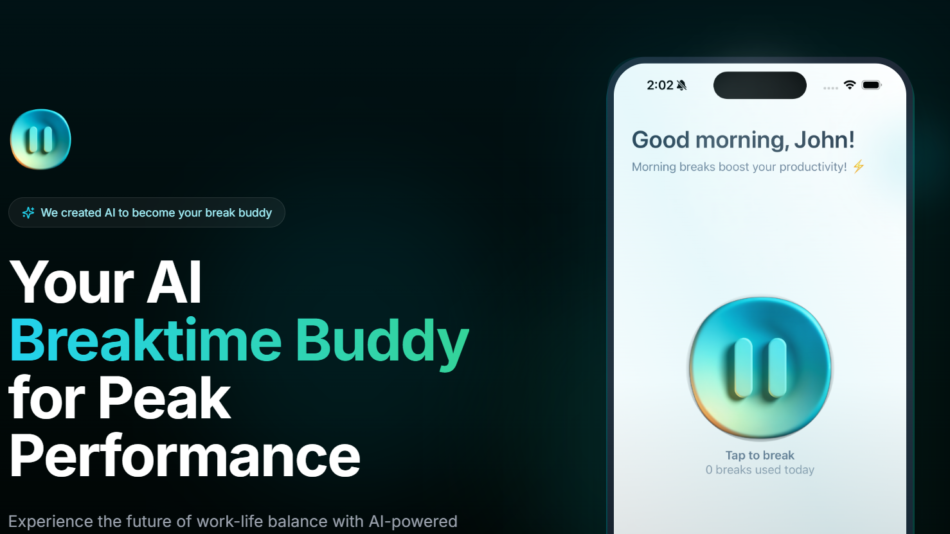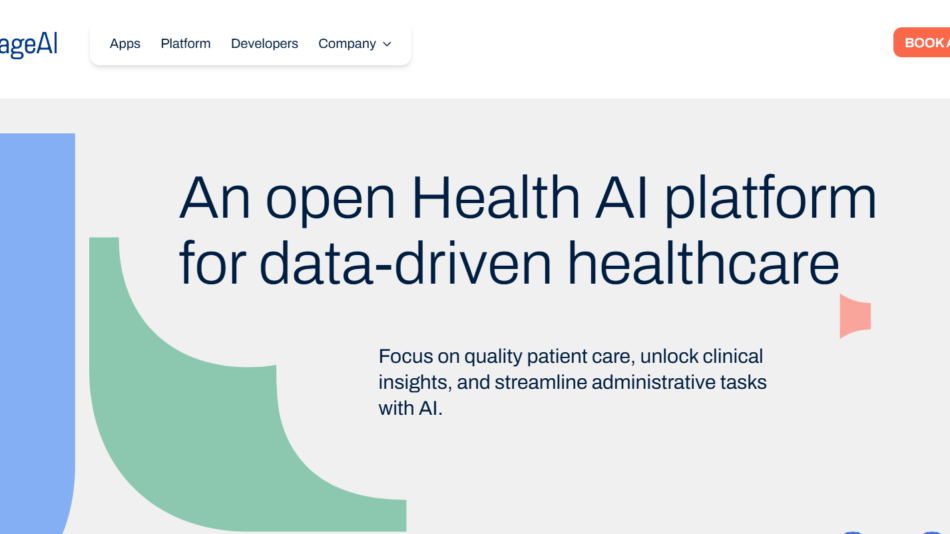QuantHealth is a clinical trial intelligence platform that uses artificial intelligence and real-world data to simulate and optimize clinical trials. Built for pharmaceutical and biotech companies, QuantHealth enables sponsors to design smarter trials, predict outcomes, and reduce development costs by using AI models trained on millions of patient data points.
With drug development costs rising and failure rates remaining high—particularly in Phase II and Phase III trials—QuantHealth provides a proactive solution. Its simulation platform helps teams answer critical questions before a trial even starts, such as which patient populations will benefit most, what endpoints are most meaningful, and how a trial might perform under different protocols.
By helping companies make data-driven decisions early, QuantHealth increases the chances of success and brings new treatments to market faster.
Features
QuantHealth offers a range of features designed to improve every stage of clinical trial planning and execution:
In-Silico Trial Simulation: Simulates patient responses to a drug using real-world data and advanced AI models.
Real-World Data Integration: Analyzes de-identified data from millions of patients to inform trial design.
Patient Stratification: Identifies optimal subpopulations most likely to respond to the treatment.
Trial Protocol Optimization: Tests different trial designs, endpoints, and eligibility criteria in silico.
Predictive Modeling: Forecasts trial outcomes, including efficacy, recruitment, and dropout rates.
Adaptive Design Support: Recommends real-time protocol adjustments during ongoing trials.
Risk Assessment Tools: Evaluates the likelihood of success and flags potential failure risks early.
Biostatistics and Compliance Support: Aligns simulations with statistical standards and regulatory guidance.
Cloud-Based Platform: Accessible to teams globally with secure data handling.
Collaborative Workflows: Allows cross-functional teams to share insights and trial scenarios.
How It Works
QuantHealth’s platform begins by ingesting vast real-world datasets from clinical trials, electronic health records, and population health databases. Using advanced machine learning, it builds patient-specific models that simulate how individuals are likely to respond to a given therapeutic intervention.
These synthetic patient simulations can then be run through thousands of trial scenarios to identify the most promising trial designs. For example, researchers can test various inclusion criteria, endpoints, dosing strategies, or geographic regions—all before enrolling a single patient.
This allows trial sponsors to:
Minimize protocol amendments
Improve patient selection
Reduce screen failure rates
Forecast regulatory outcomes
The result is a faster, more efficient, and data-backed approach to designing and managing clinical trials.
Use Cases
QuantHealth supports multiple stakeholders in drug development with a wide range of use cases:
Trial Design Simulation: Run thousands of trial variations to find optimal designs.
Go/No-Go Decisions: Simulate outcomes early to decide whether to advance a program.
Regulatory Strategy: Predict how changes to protocol or endpoints affect success probability.
Portfolio Prioritization: Identify high-value programs and avoid costly failures.
Patient Recruitment Planning: Forecast recruitment timelines and barriers.
Phase II and III Trial Optimization: Design smarter, more targeted pivotal studies.
Licensing and Due Diligence: Evaluate assets based on simulation-informed potential.
Adaptive Trial Execution: Use real-time data to inform mid-trial protocol adjustments.
Pricing
QuantHealth does not disclose specific pricing on its website. The platform is available through customized enterprise licensing agreements, tailored to the scope of the clinical program, number of trials, and user needs.
Pricing factors may include:
Number of trial simulations
Therapeutic areas covered
Access to advanced modeling modules
Integration with proprietary or sponsor-provided data
Support and training services
Prospective clients, including pharmaceutical companies, CROs, and biotechs, can request a demo or quote directly via the QuantHealth contact page.
Strengths
QuantHealth delivers a number of significant advantages for clinical development teams:
Reduces trial failure risk by simulating outcomes pre-launch
Speeds up trial planning and execution
Improves patient selection and endpoint targeting
Supports regulatory strategy with data-backed insights
Minimizes cost and time lost to protocol amendments
Built on robust real-world patient data
Backed by biostatistical and clinical expertise
Adaptable across therapeutic areas and trial phases
Drawbacks
While QuantHealth offers major benefits, some limitations to consider include:
No public pricing, which may limit transparency for small biotechs
Still emerging in broader pharma adoption, though growing rapidly
Dependent on real-world data quality and relevance
Requires data integration and onboarding, which may take time
Not a replacement for regulatory-required clinical trials—intended to improve them, not eliminate them
Comparison with Other Tools
QuantHealth operates in a unique space between clinical trial design, simulation, and real-world data analytics. Comparable platforms include:
Unlearn.AI: Focuses on digital twins and synthetic control arms; QuantHealth focuses on full trial simulation.
Saama Technologies: Offers AI-powered trial insights but less focused on simulation modeling.
TriNetX: Strong in RWD access and feasibility, but less predictive and AI-driven.
Medidata AI: Offers advanced analytics but primarily focused on execution rather than early trial design.
QuantHealth’s niche is in in-silico simulation of clinical trials at scale, offering predictive tools for optimizing trial design and success probability before a trial begins.
Customer Reviews and Testimonials
QuantHealth’s platform is used by leading global pharmaceutical companies and mid-sized biotechs. While no individual user reviews are listed publicly on G2 or Trustpilot, the company has reported strong results in pilot programs and partnerships.
Key success metrics cited in presentations include:
Up to 70% improvement in trial success probability
30–50% reduction in trial costs and timelines
Faster go/no-go decision-making based on real-world simulation outcomes
Testimonials highlight how the platform helps clinical development teams “design smarter trials with confidence” and “avoid costly mistakes early in the pipeline.”
Conclusion
QuantHealth is a powerful AI platform that brings simulation and predictive modeling to the heart of clinical trial planning. By allowing drug developers to model trial outcomes in silico—using real-world data and machine learning—QuantHealth reduces risk, improves design, and accelerates time to market.
For pharmaceutical companies, biotechs, and CROs looking to optimize clinical development, QuantHealth offers a forward-thinking solution that complements existing workflows with cutting-edge AI insights.
In a world where every day of delay costs millions, QuantHealth offers a smarter path from discovery to approval—where better trials start with better predictions.

